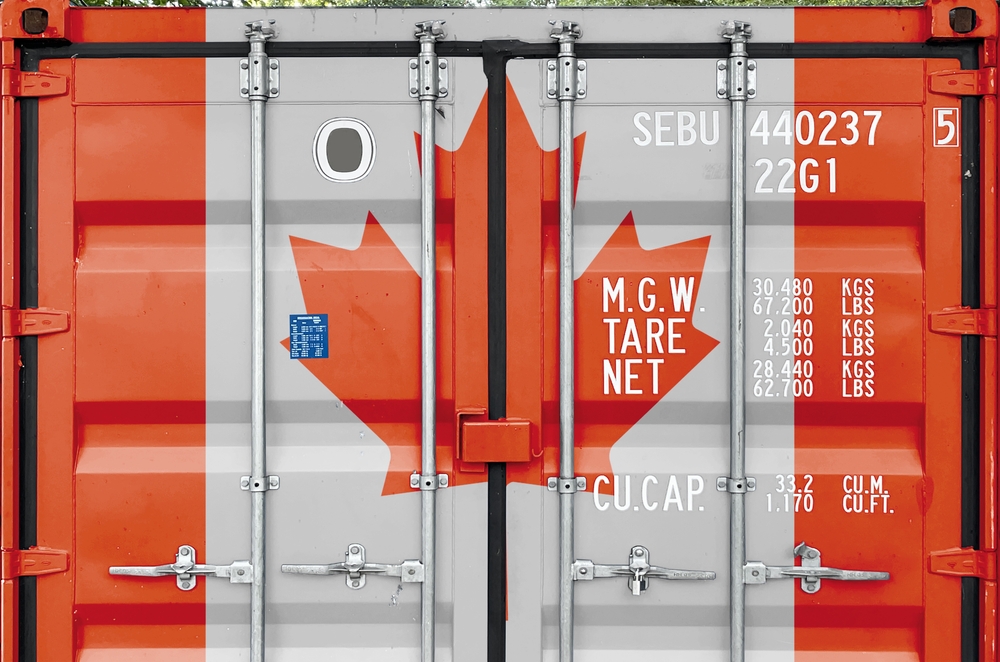Warehouse workers are essential to the logistics and supply chain sectors, ensuring the efficient handling, storage, and transportation of goods across Canada. With demand rising for organized and dependable logistics operations, warehouse work has become a cornerstone of the Canadian economy, supporting industries from e-commerce to manufacturing.
Table of Contents
- Key Responsibilities of Warehouse Workers
- Typical Warehouse Job Roles
- Necessary Skills for Warehouse Workers
- Importance of Warehouse Safety
- Warehouse Work Environment in Canada
- Challenges Facing Canadian Warehouse Workers
- Career Advancement Opportunities
- Warehouse Staffing Solutions
- Demand for Warehouse Workers in Canada
- Seasonal Demand for Warehouse Workers
- How Warehouse Work Supports Career Transitions
- Building a Strong Warehouse Team
- FAQ
Key Responsibilities of Warehouse Workers
Warehouse workers are responsible for the movement, storage, and organization of products within a warehouse or distribution center. Common duties include:
- Receiving Goods: Inspecting and logging new inventory as it arrives at the facility.
- Picking and Packing: Selecting products based on orders, and packaging them for dispatch.
- Inventory Management: Tracking items to ensure accurate inventory counts and proper stock rotation.
- Loading and Unloading: Using equipment like forklifts or pallet jacks to manage heavy shipments.
- Shipping Preparation: Organizing products for shipment and generating shipping labels.
These responsibilities are foundational in ensuring products reach customers promptly and accurately.
Typical Warehouse Job Roles
Warehouse roles vary widely, offering diverse job opportunities depending on experience and skill levels. Here are some common positions:
- Warehouse Associate: Often entry-level, responsible for receiving, processing, and storing inventory.
- Forklift Operator: Specializes in operating forklifts and other equipment to move goods within the warehouse.
- Inventory Specialist: Manages stock levels and ensures accuracy in inventory tracking.
- Shipping and Receiving Clerk: Oversees the loading and unloading of goods and coordinates deliveries.
- Warehouse Supervisor: Manages teams of workers, coordinates tasks, and ensures safety protocols are followed.
For businesses looking to fill these positions, reliable staffing solutions are available to support workforce needs during peak seasons or periods of high demand.
Necessary Skills for Warehouse Workers
Successful warehouse workers possess a blend of technical and soft skills, including:
- Attention to Detail: Crucial for maintaining accurate inventory records and minimizing errors.
- Physical Stamina: Warehouse work is often physically demanding, requiring workers to stand, lift, and move heavy items.
- Organization: Essential for managing large volumes of inventory and ensuring efficient workflows.
- Time Management: Managing tasks effectively to meet shipping and receiving deadlines.
- Technical Skills: Operating machinery like forklifts and using inventory management software are valuable competencies.
Individuals interested in this field can explore more about essential skills and tools in our dedicated staffing agency services for warehouse roles.
Importance of Warehouse Safety
Safety is a priority in warehouse settings due to the physical nature of the work and the presence of machinery. Key safety protocols include:
- Use of PPE (Personal Protective Equipment): Workers are required to wear gloves, helmets, and high-visibility vests.
- Forklift Training and Certification: Proper training is mandatory for operating forklifts to prevent accidents.
- Regular Safety Audits: Inspections ensure that safety protocols are followed and hazards are minimized.
- Emergency Procedures: Training workers on emergency exits, first aid, and fire safety.
Given the risks, companies that support their workforce with training on contingency planning for safety and strike management help foster a safer, more prepared environment for their teams.
Warehouse Work Environment in Canada
The warehouse work environment in Canada can vary based on the industry and location. Generally, Canadian warehouses operate year-round, often adjusting to seasonal demands, such as during the holiday season when demand spikes. Many warehouses operate in multiple shifts, offering flexible hours for workers.
With the cold Canadian winters, warehouses ensure that indoor conditions remain conducive to efficient work. Additionally, warehouses have been steadily adopting technology, such as automated picking systems, to streamline operations and improve productivity.
Challenges Facing Canadian Warehouse Workers
Canadian warehouse workers face unique challenges, including:
- Labor Shortages: Finding qualified workers is an ongoing challenge in Canada, with industries often relying on agencies for staffing solutions.
- Seasonal Demand: Holidays and peak seasons can lead to high workloads and extended hours.
- Health and Safety: The physical nature of the job can result in workplace injuries, necessitating strict safety standards.
- Technological Adaptation: Workers need to keep up with evolving technology, such as automated systems and warehouse management software.
For companies experiencing labor shortages, on-demand workforce solutions can provide relief during high-demand periods.
Career Advancement Opportunities
Warehouse work offers various advancement opportunities, making it an appealing choice for career-oriented individuals. Many workers start as warehouse associates or pickers and gradually move into specialized or supervisory roles. Training in specialized areas, such as inventory management or forklift operation, can help workers progress faster.
Positions like warehouse manager, logistics coordinator, and inventory supervisor are natural career paths for those aiming to advance. Additionally, there are numerous staffing agencies that specialize in matching skilled workers with roles suited to their expertise and growth aspirations.
Warehouse Staffing Solutions
Staffing plays a crucial role in maintaining an efficient warehouse operation, especially during periods of labor shortages or high demand. Staffing agencies help businesses by providing:
- Temporary and Permanent Staffing: Flexibility to meet fluctuating demands.
- Skilled Labor Solutions: Access to qualified and pre-screened candidates.
- Reduced Turnover: Matching employees with companies to ensure a good fit and reduce attrition rates.
For warehouse managers seeking dependable staffing, our warehouse worker staffing services can meet various workforce needs efficiently, even on short notice.
The Role of Technology in Canadian Warehouses
Technology is transforming warehouse operations across Canada, streamlining workflows and optimizing productivity. Modern warehouses increasingly rely on automation, advanced software, and data analytics to enhance efficiency and meet growing demand. Here are some of the key technologies impacting the industry:
- Warehouse Management Systems (WMS): These software platforms help track inventory, manage orders, and optimize the picking and packing process. WMS solutions can also improve stock accuracy and reduce errors, ensuring timely fulfillment of orders.
- Automated Picking Systems: Automated systems use robotics and conveyor belts to retrieve products, cutting down on the manual labor required for order fulfillment. These systems can significantly speed up the picking process, especially in large facilities.
- Barcoding and RFID Technology: Barcoding and Radio Frequency Identification (RFID) improve inventory tracking by allowing workers to quickly scan items and update records in real time. This technology reduces errors and enhances inventory visibility, helping maintain accurate stock levels.
- Internet of Things (IoT) Sensors: IoT sensors are used to monitor the condition of inventory, such as temperature-sensitive goods, ensuring that products are stored correctly and remain in optimal condition.
For Canadian warehouse workers, adapting to this technology has become essential. Employees who can operate advanced systems or work alongside robotics gain a competitive edge and open doors to specialized roles within the warehouse. Canadian companies experiencing labor shortages or seeking to increase efficiency should consider incorporating more automated systems and WMS solutions to support their workforce and enhance productivity. For more on how technology is shaping the industry, visit our dedicated page on workforce solutions tailored for modern warehouses.
Demand for Warehouse Workers Across Canadian Regions
The demand for warehouse workers in Canada varies by region, driven by factors such as population density, proximity to distribution hubs, and regional economic trends. Key regions with high demand for warehouse labor include:
- Ontario: Ontario, especially the Greater Toronto Area, is a major logistics and distribution hub in Canada. With numerous warehouses supporting the thriving e-commerce and manufacturing sectors, Ontario has one of the highest demands for warehouse workers.
- British Columbia: With Vancouver as a major port, British Columbia serves as a gateway for goods coming into Canada. The Port of Vancouver’s logistics sector depends heavily on warehouse workers for the efficient handling and distribution of imported goods.
- Quebec: Quebec has a growing e-commerce industry, especially in Montreal, where demand for warehouse space and workers has increased. The province is an important link in the supply chain, particularly for companies distributing to Eastern Canada.
- Alberta: Alberta’s strong manufacturing and agriculture industries generate consistent demand for warehouse workers. Calgary and Edmonton are important hubs, supporting the flow of goods to and from the province.
Each region offers different job opportunities, from general labor roles to specialized positions in automated and high-tech facilities. For those seeking work in specific locations, exploring a reliable staffing agency with expertise in Canadian logistics markets can provide insights into regional hiring trends.
Seasonal Demand and Temporary Staffing in Warehousing
Warehouse work often experiences seasonal fluctuations, particularly during peak times like the holiday season, back-to-school, and specific regional events. During these periods, warehouses may need to increase their workforce temporarily to handle the higher volume of orders. Temporary and seasonal warehouse workers play a crucial role in helping companies manage these spikes efficiently.
For companies, a staffing agency can provide temporary workforce solutions, allowing them to quickly scale up their labor force and adjust according to demand without the long-term commitment. Agencies specialize in providing temporary staffing solutions to keep operations running smoothly during peak periods, ensuring that businesses maintain productivity and meet customer expectations.
How Warehouse Work Supports Career Transitions
Warehouse roles can serve as an excellent starting point for those transitioning into the logistics and supply chain fields, even without prior experience. Warehouse positions provide practical, hands-on experience in inventory management, teamwork, and logistics, which are highly valued in various sectors.
Employees who begin in entry-level warehouse roles often gain valuable insights into the logistics industry, making it easier to transition into other fields like transportation management, supply chain analytics, or inventory coordination. Many employers value the practical skills and work ethic that former warehouse employees bring to other positions in logistics.
For more information on how warehouse work can be a stepping stone in career transitions, especially in high-demand areas like manufacturing and e-commerce, explore career-focused staffing solutions that help workers find positions tailored to their skills and ambitions.
Building a Strong Warehouse Workforce in Canada
As demand for skilled warehouse workers continues to grow in Canada, building a strong workforce is crucial for companies across the country. Focusing on attracting, retaining, and training a diverse pool of workers enables companies to handle fluctuating demands effectively and build resilience in their supply chains.
Key strategies for building a resilient workforce include:
- Comprehensive Training: Investing in safety and technology training programs for warehouse workers enhances operational efficiency and reduces the risk of workplace accidents.
- Flexible Staffing Solutions: Relying on flexible staffing options, such as temporary workers during peak seasons, allows companies to adapt to changing demand without the burden of overstaffing.
- Workplace Incentives: Offering competitive wages, career advancement opportunities, and a safe work environment attracts workers and fosters long-term loyalty.
Employing reliable staffing solutions helps companies ensure they are fully prepared for any labor demands, creating a stable, effective workforce that can adapt to industry trends. For businesses looking to strengthen their logistics operations, explore our staffing solutions for warehouse environments tailored to Canadian companies’ unique needs.
FAQ
1. What is the typical salary for a warehouse worker in Canada?
Salaries for warehouse workers in Canada vary by role and experience. Entry-level positions may start at around $15–$18 per hour, while skilled roles, such as forklift operators, can earn higher wages. Supervisory roles generally command salaries in the range of $45,000–$60,000 annually.
2. What are the primary skills needed to work in a warehouse?
Core skills include physical stamina, attention to detail, organization, and time management. Technical skills like forklift operation and familiarity with inventory software are also valuable.
3. Are there career growth opportunities in warehouse work?
Yes, warehouse work offers clear paths for advancement. With additional training, workers can move into specialized roles or managerial positions.
4. How can a staffing agency help with warehouse jobs?
Staffing agencies provide access to qualified candidates and offer flexibility in hiring temporary, seasonal, or permanent staff, making it easier to manage workforce needs.
5. Is warehouse work physically demanding?
Yes, warehouse work can be physically demanding. It often involves standing for long hours, lifting heavy items, and operating machinery, making physical stamina essential.
Warehouse workers play a pivotal role in supporting Canada’s economy, ensuring that goods move smoothly from suppliers to consumers. With diverse job roles, career advancement opportunities, and the backing of staffing solutions, warehouse work remains a dynamic and essential field in Canada. For companies facing staffing challenges or workers seeking opportunities, our staffing services provide a pathway to meet needs effectively and efficiently.










